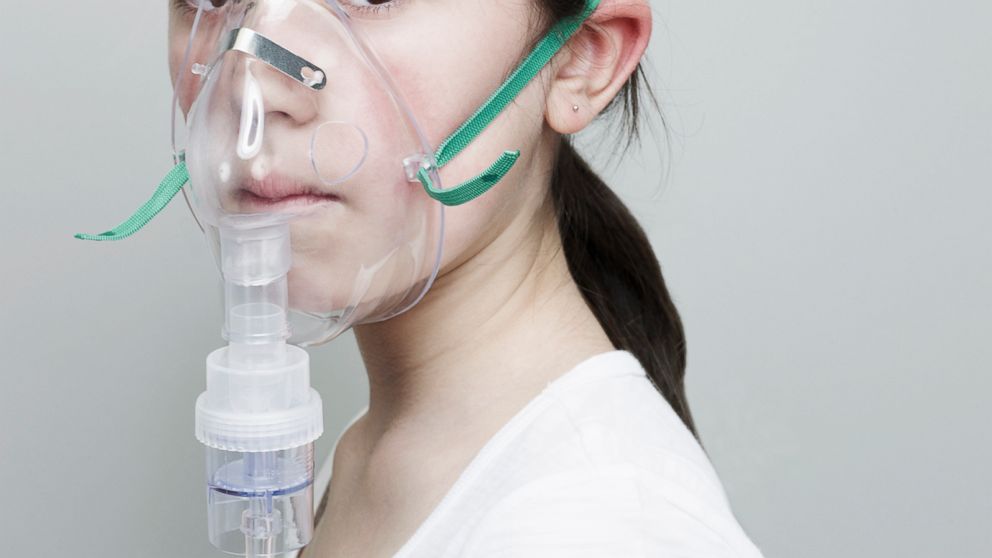Unidentified Respiratory Virus Likely to Hit Kids Across Country - A respiratory illness that has already sickened more than a thousand children in 10 states is likely to become a nationwide problem, doctors say.
The disease hasn't been officially identified but officials suspect a rare respiratory virus called human enterovirus 68. According to the U.S. Centers for Disease Control and Prevention_" target="_blank">Centers for Disease Control and Prevention, the virus is related to the rhinovirus, which causes the common cold.
According to Mark Pallansch, director of the Division of Viral Diseases at the CDC, similar cases to the ones in Colorado have been cropping up across the U.S. At least 10 states -- Missouri, Kansas, Illinois, Kentucky, Iowa, Colorado, Ohio, Oklahoma, North Carolina, and Georgia -- have reported suspected outbreaks of human enterovirus 68 and requested CDC support.

Potentially Deadly Mystery Virus
"Viruses don't tend to respect borders," ABC News Chief Health and Medical Editor Dr. Richard Besser said. "It is only 10 states now, but it's going to be across the country. So if your state doesn't have it now, watch for it, it's coming."
Doctors say they are not even sure yet how this particular virus spreads, though the back-to-school season is a normal time for illnesses to spread among children.
"This is a very common time for outbreaks. Kids come back to school, they like to share things, they bring them home to their little brothers and sisters, and enteroviruses tend to occur in the summer," Besser said. "But this one, this particular Enterovirus 68, is very rare and they have no idea why it showed up this year."
At Children's Hospital Colorado in Denver, officials say that between Aug. 18 and Sept. 4, doctors saw more than 900 pediatric patients with symptoms of the respiratory virus in the emergency room. Of those who came in, 86 were admitted into the hospital and a handful ended up in the intensive care unit.
"It can start just like a cold -- runny nose, sneezing, coughs -- but it's the wheezing you have to watch out for," Besser said.
Dr. Christine Nyquist, a pediatrician at Children's Hospital Colorado, said the virus usually ends up appearing similar to a severe cold but can be particularly dangerous for children with asthma because of how it affects the respiratory system.
"The kids are coming in with respiratory symptoms, their asthma is exacerbated," Nyquist said. "Kids with no wheezing are having wheezing."
At Rocky Mountain Hospital for Children, Dr. Raju Meyappan, a pediatric critical care physician, said he's seen at multiple children end up in the pediatric intensive care unit after being infected with the virus and that children under the age of 5 or those with asthma appear to be most at risk.
In one particularly severe case, Meyappan said a 13-year-old asthmatic patient ended up in the emergency room just one day after showing basic cold-like symptoms, including cough and runny nose.
His asthma became so severe on the second day the teenager turned blue and was rushed to the emergency room, where doctors gave him an emergency breathing tube.
The patient was one of multiple asthmatic pediatric patients who ended up sedated in the intensive care unit with a breathing tube, Meyappan said. Patients who needed breathing tubes spent between four to seven days sedated and intubated as they recovered, he said.
"As a pediatric ICU doctor, we try our best not to intubate kids with asthma at any point in time," said Meyappan, who added that only the most severe cases warranted intubation. "They all needed it. The onset [of the virus] is severe."
Meyappan said currently four patients were in the pediatric ICU recovering.
There are multiple reasons why the outbreak was hitting Denver now, instead of later in the fall or winter when flu.htm" id="ramplink_cold and flu_" target="_blank">cold and flu infections start to rise, Nyquist said.
In addition to school starting, Nyquist said, some children with asthma could have seasonal allergies that are exacerbated by the virus.
"Any kind of viral infection can kick off wheezing and asthmas," she said. "People with asthma know what triggers their asthma. A viral infection is one thing and this is the one that is circulating."
To stay healthy, the CDC recommends basic sanitary practices to avoid spreading the virus, including washing hands, avoiding those who are sick, and covering the nose and mouth during sneezes or coughs.
Meyappan said parents of asthmatic children should make sure that their children's inhalers are easily accessible and that there is a treatment plan in place if an asthma attack continues to get worse.
"Make sure [parents] talk to all their caregivers about what to do if [the child has] an asthma attack and where to go if they need help," Meyappan said. "I think having a game plan in place helps." ( Good Morning America )
No comments :
Post a Comment